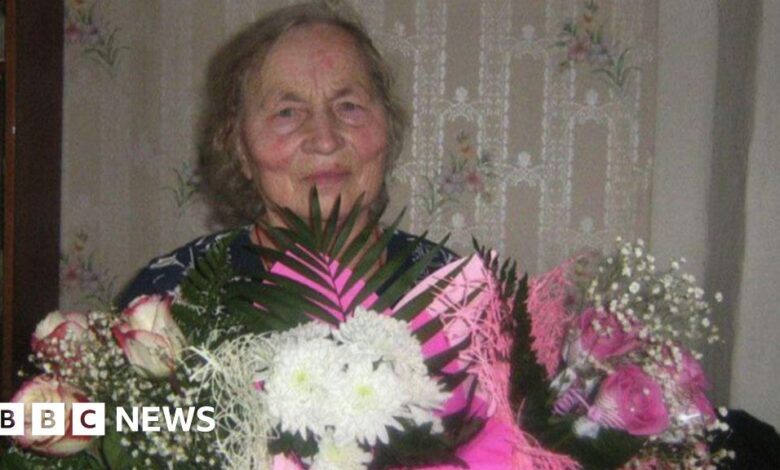Elderly woman’s killer released for second time to fight in Ukraine

A Russian killer released from prison to fight in the war in Ukraine, who later killed an elderly woman, has been released a second time to return to the front line, according to the woman’s relatives.
“Her killer escaped punishment for his crime – again – and went to fight,” Anna Pekareva, Yulia Byuskikh’s granddaughter, told the BBC.
In 2022, Ivan Rossomakhin is released from prison, where he is serving a 14-year sentence for murder, to join the Wagner mercenary group.
He was then allowed to return home to the Vyatskiye Polyany district of Russia’s Kirov Region, where he attacked and killed 85-year-old Yulia in her own home.
The murder was one of many committed by criminals released from prisons across Russia to join the Wagner group.
In April this year, Rossomakhin, 29, was convicted of the rape and murder of Yulia and sentenced to 22 years in a high-security prison, later increased to 23 years. The court noted that the murder was “extremely brutal”.
But Anna said the prison director had now informed the family that Rossomakhin had been released on 19 August – just a week after his sentence began.
“My first reaction was horror. I read the forensic reports and I know what this person did to my grandmother. It’s horrible that he was released,” Anna said, adding: “The fact that this is happening in the 21st century… there are no words to describe what is happening!”
An official document seen by the BBC, signed by the prison director, states that the prisoner was released under a specific Russian law that allows the military to recruit prisoners to send to the front line.
This is the second time the convicted murderer has been released from prison to fight in Ukraine.
Soon after the full-scale invasion began, Yevgeny Prigozhin’s Wagner mercenary group began recruiting prisoners from prisons to fight in Ukraine. If the prisoners agreed to sign up, they would receive an official amnesty from Russian President Vladimir Putin.
Thousands of rapists, murderers and other criminals, including Ivan Rossomakhin, were released from prison and sent to the front lines, where many were killed in brutal attacks on Ukrainian cities like Bakhmut.
After Prigozhin’s failed uprising last year, when thousands of Wagner mercenaries marched on Moscow, the Russian military took over the practice of recruiting prisoners from prisons. The practice was formalized in official federal law in March this year, and recruitment now appears to be on the rise.
By law, convicted criminals who register for combat duty receive a reprieve while they serve in the military. Some can even be formally pardoned if they win awards, such as “valor” on the battlefield.
The Russian embassy in London did not respond to a request for comment on the release of dangerous criminals to fight in Ukraine.
Ukraine has also released some prisoners to fight on the front lines, although those convicted of murder or sex crimes are not eligible. As many as 3,000 prisoners have joined the army, Ukraine’s Deputy Justice Minister Olena Vysotska told the Associated Press earlier this year.
A fierce offensive by Russian forces in Ukraine’s Donbas region this year has depleted Moscow’s reserves, with the British Ministry of Defence estimating that Russia has lost up to 70,000 men in the two-month campaign – an average casualty rate of around 1,000 a day.
Regular recruitment campaigns are also being stepped up. One-off payments for volunteering to fight have increased sharply over the past year. In some cases, men have been offered as much as 1.5 million roubles (£12,360) to sign up.
The Kremlin’s willingness to release extremely dangerous criminals like Rossomakhin and send them to war shows that the Russian military is in dire need of new recruits.
“There is clearly not enough manpower,” said Anna.
“The authorities do not care about peaceful civilians if they allow people who have committed serious crimes to be exonerated and released from prison. That tells us that no one can feel safe in Russia.”
Anna said Rossomakhin’s release meant her family were now in extreme danger: “If he comes back, he will try to take revenge on us – for our efforts to ensure he gets a life sentence.
She said she wanted to leave the country and the other family members would go into hiding.
“It’s scary that he’s not the only one. Even if he doesn’t come back, how many murderers and psychopaths are still wandering around out there?”


